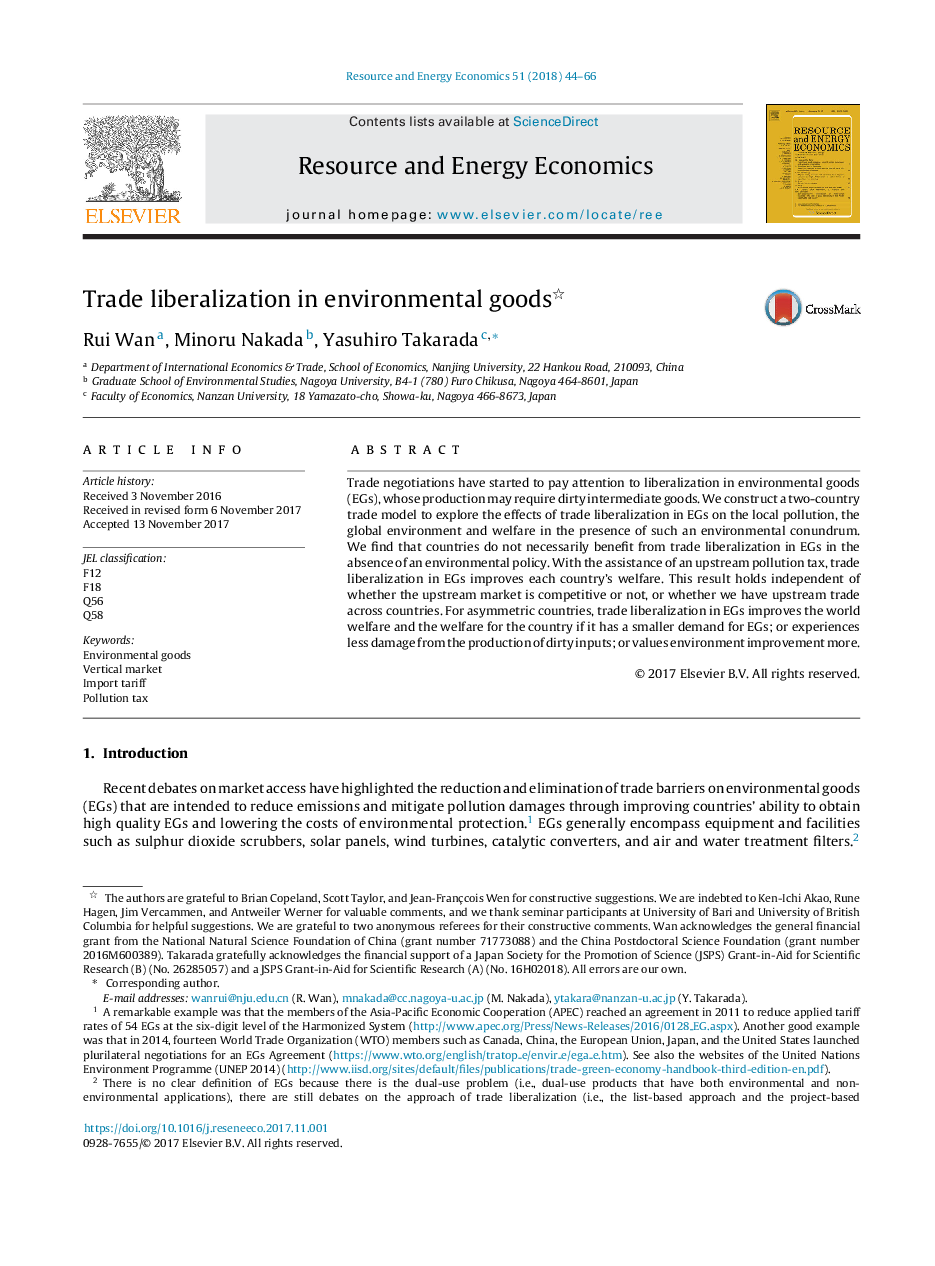| Article ID | Journal | Published Year | Pages | File Type |
|---|---|---|---|---|
| 7387449 | Resource and Energy Economics | 2018 | 23 Pages |
Abstract
Trade negotiations have started to pay attention to liberalization in environmental goods (EGs), whose production may require dirty intermediate goods. We construct a two-country trade model to explore the effects of trade liberalization in EGs on the local pollution, the global environment and welfare in the presence of such an environmental conundrum. We find that countries do not necessarily benefit from trade liberalization in EGs in the absence of an environmental policy. With the assistance of an upstream pollution tax, trade liberalization in EGs improves each country's welfare. This result holds independent of whether the upstream market is competitive or not, or whether we have upstream trade across countries. For asymmetric countries, trade liberalization in EGs improves the world welfare and the welfare for the country if it has a smaller demand for EGs; or experiences less damage from the production of dirty inputs; or values environment improvement more.
Related Topics
Physical Sciences and Engineering
Energy
Energy (General)
Authors
Rui Wan, Minoru Nakada, Yasuhiro Takarada,
